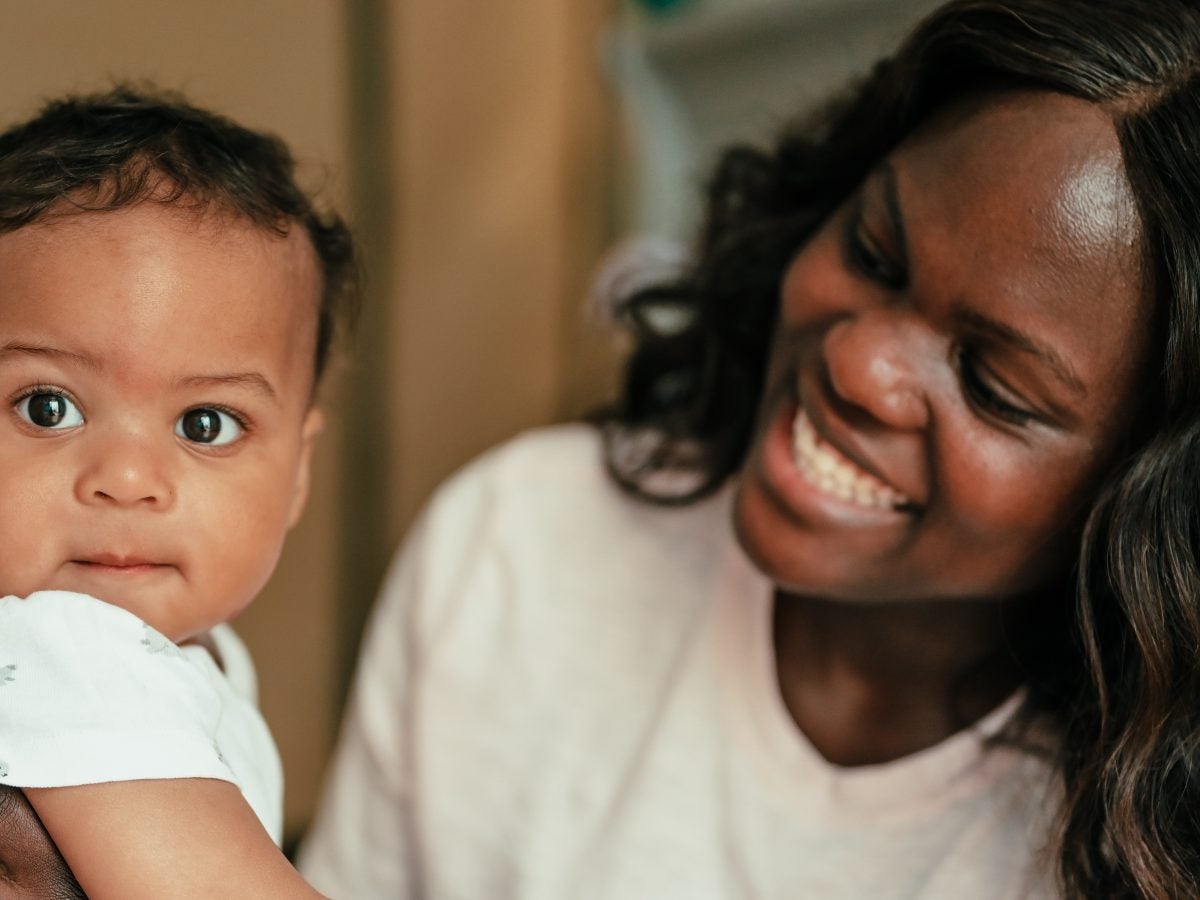
The adage is true that when it comes to the intentional raising of our children, “It takes a village.” But how can we as parents and caregivers call on that network if we’re raising our kids using methods that our support system finds unfamiliar or new age?
A quick skim of the upbringing side on Instagram, and you’ll notice that gentle parenting seems to have solidified itself as the foremost style for millennials and the current batch of Gen Z parents. Accounts dedicated to educating the masses about the benefits and challenges of what’s also called intentional parenting have skyrocketed in the last few years. For Black moms and dads, who believe in the approach, this form of parenthood is a chance to give our children a freedom and softness that many of us weren’t afforded—and an opportunity to give our own inner child the space to feel held, heard and honored. Including our extended community in that commitment to creating an environment modeled on love, mutual respect and safety is not always an easy task. That’s because not everyone, particularly elders, knows or understands what gentle parenting is, while others believe the style to be too hands-off.
“The number-one presumption about gentle parenting that I hear is that there’s no discipline, and that’s simply not true,” says Destini Ann, a certified parenting coach and mother of two, who has amassed almost 350,000 Instagram followers for her down-to-earth, relatable advice. “Discipline means to teach, and through my coaching work with parents, I try to show them that discipline comes from leadership,” she continues. “It doesn’t need to be a power struggle.” Children respond to routine and balance in the home—and Ann explains that too often there is a misalignment of values between what is expected of our children and what they see displayed in the home: “You need to set your child, and yourself, up for success. Figure out right away what your values actually are for a happy and healthy home.”
Values alignment is also key in how we invite our circle into our gentle-parenting practice. Trina Greene Brown, founder of Parenting for Liberation, a virtual community uplifting Black mothers and fathers, suggests we seek to understand others’ perspectives. “Ask them how they understand or interpret gentle parenting,” she says. “Ask them what parenting style they feel like they most align with, and why. You need to understand what their beliefs and value systems are, so you can work to unpack that together.”

In the case of gentle parenting, practicing what you preach is also a critical factor for success with fellow adults. “If gentle parenting is about being gentle with our children, supporting them when they’re having a hard time or big feelings, and creating healthy boundaries, then we have to practice those same things with our village,” Brown says. “If the adults in our community don’t understand, or have hesitations, we have to meet them where they are. We can’t force or make demands of people, because then we’re not actually in alignment with our own values.”
In my own still relatively young motherhood journey, I was initially drawn to gentle parenting because it reflected the type of person I wanted to be: patient, understanding and flexible, and somebody who held and enforced healthy and reasonable boundaries. Applying that to raising my son seemed to be the next logical step. My husband and I agreed that our starting point would always be ensuring that our son knows that he is loved and safe with us—always. By extension, we would have to ensure that those around us, and around our son, agree to uphold that same value. Thankfully, we’ve been fortunate to have experienced almost no pushback. In explaining gentle and intentional parenting to my own parents, I expressed that this was in no way an indictment on how they raised me. In fact, my childhood was peaceful and filled with adoration. My approach, then, was simply building on the foundation that they laid, while also using the privileges and resources afforded to my husband and me that they may not have had.
“So many of our parents and grandparents were shaped by their difficult circumstances,” Ann says. “People do the best they can with what they can. And sometimes the easiest way to manage was spanking, or sending kids to their room, or screaming. It was quick and seemingly effective. In contrast, gentle parenting is an ongoing conversation with yourself and your child. ‘What is it that you’re really feeling in this hard moment? What am I feeling? How can we keep each other safe right now?’ It’s not always easy. This is a rewiring of our brains.”
So how do parents ensure that the community surrounding their children maintains the same level of safety, mutual respect and parameters? Ann acknowledges that we can’t force people to do things the same way that we do, but that your child being exposed to different environments won’t undo all the hard work you have done. “We have to build resilience into our children,” she says. “We have to teach them how to self-regulate when mom or dad aren’t around. Most critically, we have to figure out immediately what our non-negotiables are for our kids. Are you a no-spanking family? No yelling? Make those things as clear as possible, and decide on consequences for breaking those boundaries.”
Perhaps equally as important, when you’re inviting your community into your intentional-parenting practice, Brown points out that you, too, have to be willing to learn: “You need to have an open mind and an open heart, in order to collaborate in good faith. Be vulnerable with people. Share that you don’t necessarily think you’re doing everything right. Share that you’re open to learning from them, too.”
The raising of a child requires curiosity about your child and the infinite ways in which they are becoming, and about the infinite ways in which you as the parent are both learning and unlearning. Ann sees parenting as leadership—“and the best leadership is done side by side.”
As bell hooks wrote in her preeminent book All About Love, “When we love children, we acknowledge by our very action that they are not property, that they have rights—that we respect and uphold their rights.” hooks described this as “liberative parenting”—and perhaps that’s actually what is at the core of, and what’s at stake with, gentle parenting for Black parents and caregivers: liberation. Brown agrees, and encourages the inclusion of our village in gentle parenting simply by letting them bear witness to it.
“If they can see how you engage with your children as people, they will see how they gravitate to you, how they listen to you, the responses you get,” she says. “They will then see the possibilities for themselves. By ensuring that young people feel loved and supported, we can heal generations forward and backward. Including our village and community is how we ensure that this healing work is robust and resilient enough for not just our children, but our children’s children.”